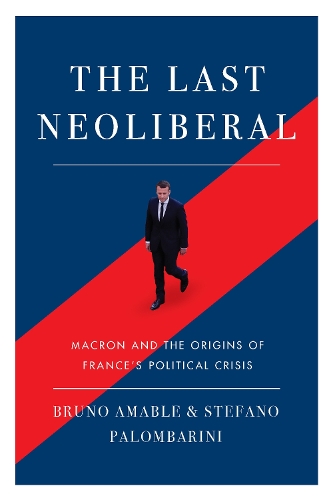
The Last Neoliberal: Macron and the Origins of France's Political Crisis
(Paperback)
Publishing Details
The Last Neoliberal: Macron and the Origins of France's Political Crisis
By (Author) Bruno Amable
By (author) Stefano Palombarini
Verso Books
Verso Books
4th May 2021
United Kingdom
Classifications
General
Non Fiction
Centrist democratic ideologies and movements
944.084092
Physical Properties
Paperback
192
Width 140mm, Height 210mm, Spine 13mm
189g
Description
This book analyses the French political crisis, which has entered its most acute phase in more than thirty years with the break-up of traditional left and right social blocs. Governing parties have distanced themselves from the working classes, leaving behind on the one hand craftsmen, shop owners and small entrepreneurs disappointed by the timidity of the reforms of the neoliberal right and, on the other hand, workers and employees hostile to the neoliberal and pro-European integration orientation of the Socialist Party. The presidency of Franois Hollande was less an anomaly than the definitive failure of attempts to reconcile the social base of the left with the so-called modernisation of the French model. The project, based on the pursuit of neoliberal reforms, did not die with Hollandes failure; it was taken up and radicalised by his successor, Emmanuel Macron. This project needs a social base, the bourgeois bloc, designed to overcome the rightleft divide by a new alliance between the middle and upper classes. But this, as we have seen recently on the streets of Paris and elsewhere, is a precarious process.
Reviews
Praise for Structural Crisis and Institutional Change in Modern Capitalism:
"This book is historical-institutionalist political economy at its best." -- Wolfgang Streeck * ILR Review *
In the authors' view, all the major parties in France have given up on the traditional postwar "social-liberal" compromise that combined moves toward fluid labor markets, external openness, and EU cooperation with continued redistribution, social solidarity, and upward mobility. -- Andrew Moravcsik * Foreign Affairs *
Author Bio
Bruno Amable is professor of political economy at the University of Geneva. His research focuses on comparative capitalism and the political economy of institutions and change. He is the author of The Diversity of Modern Capitalism (OUP 2003) and Structural Crisis and Institutional Change in Modern Capitalism. French Capitalism in Transition (OUP 2017). Stefano Palombarini is assistant professor of economics at the university Paris 8. He has worked on the political economy of the Italian political crisis and is the author of La rupture du compromis social italien. Un essai de macroconomie politique (CNRS Editions 2001) and, co-authored with Bruno Amable, Lconomie politique n'est pas une science morale (Raisons d'Agir 2005).
